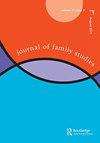Work-parenthood conflicts at the operator and professional levels in Chile’s mining industry: a gender analysis
IF 1.4
4区 社会学
Q3 FAMILY STUDIES
引用次数: 1
Abstract
ABSTRACT The aim of this article is to determine, from a gender and class perspective, how mothers who work in mining operations experience the tensions associated with motherhood in comparison with father workers, within the context of the work-family relationship in an industry with shift systems. A qualitative methodology was used to interpret perceived difficulties and strategies for dealing with maternity/paternity and work conflicts. Results show that mother workers perceive that the maternal role is socially ignored; that they have great difficulties in exercising their maternity, that their main subjective problems are frustration, anxiety, and guilt; that conflicts are less acute for female supervisors, associated with their class status, the support of paid domestic workers, and the dedication of time to individual hobbies; and that strategies for dealing with conflicts are palliative. We conclude that a perception of ‘privatization of the work-motherhood balance’ predominates, with mother workers taking responsibility for their self-integration, which they deem to be a personal rather than a social problem. All interviewees adopt a position of ‘gender neutrality’. Paradoxically, women do not prioritize demanding differential measures for working mothers, although they perceive that their motherhood is socially judged by the sexist culture of their work environment.智利采矿业经营者和专业人员层面的工作与父母冲突:性别分析
本文的目的是从性别和阶级的角度来确定,在轮班制行业的工作-家庭关系背景下,与父亲工人相比,在采矿作业中工作的母亲如何经历与母性相关的紧张关系。采用了一种定性方法来解释在处理产妇/父亲身份和工作冲突方面所遇到的困难和战略。研究结果表明,母性工作者认为母性角色被社会忽视;她们在履行母性方面有很大的困难,她们主要的主观问题是沮丧、焦虑和内疚;女性主管之间的冲突不那么尖锐,这与她们的阶级地位、有偿家务工人的支持以及对个人爱好的投入有关;处理冲突的策略是治标不治本的。我们得出的结论是,“工作与母亲平衡私有化”的看法占主导地位,母亲工作者对自己的自我整合负责,她们认为这是个人问题而不是社会问题。所有受访者都采取了“性别中立”的立场。矛盾的是,女性并没有优先要求对职业母亲采取区别对待的措施,尽管她们意识到她们的母性受到她们工作环境中的性别歧视文化的社会评判。
本文章由计算机程序翻译,如有差异,请以英文原文为准。
求助全文
约1分钟内获得全文
求助全文
来源期刊

Journal of Family Studies
FAMILY STUDIES-
CiteScore
3.20
自引率
12.50%
发文量
52
期刊介绍:
The Journal of Family Studies is a peer reviewed international journal under the Editorship of Adjunct Professor Lawrie Moloney, School of Public Health, LaTrobe University; Australian Institute of Family Studies; and co-director of Children in Focus. The focus of the Journal of Family Studies is on the wellbeing of children in families in the process of change.
 求助内容:
求助内容: 应助结果提醒方式:
应助结果提醒方式:


